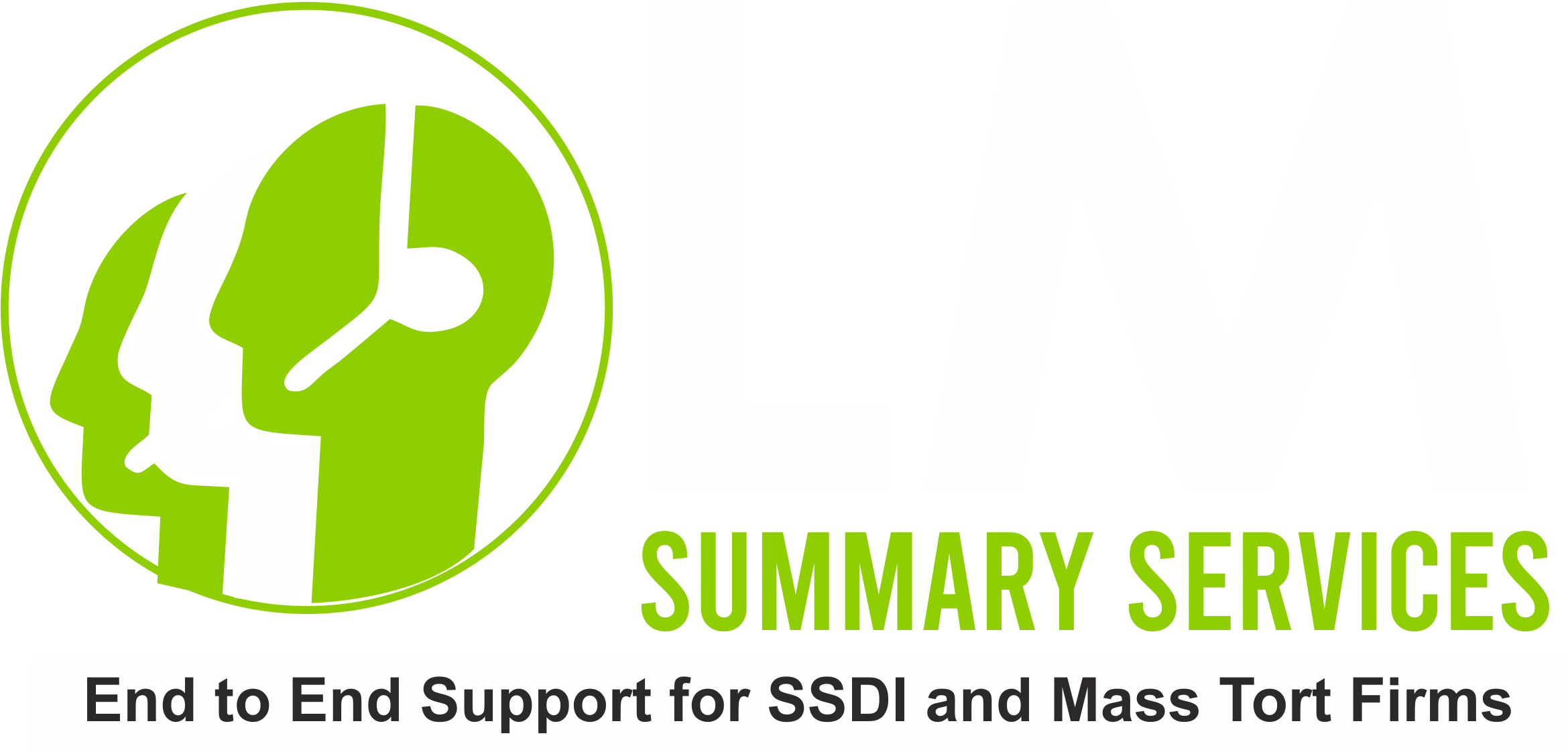When you are applying for VA disability, or you are representing someone who is, it’s important to build as strong a case as possible. While this is done in many ways, the most important part of the puzzle is often the medical chronology. Medical chronologies for VA disability are important because the VA uses the information to help understand things such as how a disability began, what treatments were administered and what the prognosis is.
If you are thinking that a document this important is something you could create yourself, you might want to think again. A thorough and complete medical history can be a time-consuming document that has to be right, or it can end up hurting your case. With that being said, here are some reasons to use a chronology service when you need a VA disability memo.
1) Good medical histories take a long time
To make a thorough and complete medical history takes a long time. It requires pouring over hundreds, if not thousands, of medical documents in order to get all of the necessary information. Meanwhile, the case might drag on for months and months, and all the while even more paperwork is being generated that you have to go through and add to the existing chronology. In other words, creating a successful chronology takes a lot of time — time that should be spent on other important things related to the case.
2) Good medical histories take up your attention
While medical chronologies are important, they aren’t the only thing that goes into making a successful disability case. While all your time is spend on the history, there are other parts of the case being neglected. By letting someone else do the heavy lifting on this, you can work on other aspects of the case (or even other matters entirely) that should not be neglected.
3) Good medical histories take a trained eye
Another important thing to remember when preparing a successful VA disability memo is that this is not something that just anyone can do well. Because a useful medical chronology requires pouring over so many documents, it takes a trained eye to be able to spot what information is necessary and what is not. Even though a chronology needs to be thorough, it also requires the ability to know what not to include. Knowing what to include and what not to include, and then knowing what to do with that information once you’ve found it is the hallmark of a trained medical chronology expert.
4) Good medical histories are vital for the disability hearing.
Because successful VA disability memos are a vital part of a VA disability hearing, it’s important to make sure your medical chronology is as good as it can get. This is not the time to try and cut a few corners. These records are used to provide objective evidence that your disability is a real condition that requires benefits and services in order to be manageable. Without this medical history, the case is as good as dead in the water.
